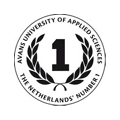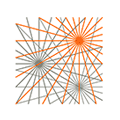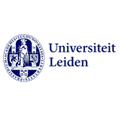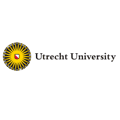Masters Degrees, Graduate Studies and Professional Programs in Netherlands

Avans University of Applied Sciences
Hertogenbosch, Netherlands
Avans University of Applied Science is a Dutch vocational university, founded in 2004. It is located in three cities: Breda, 's-Hertogenbosch, and Tilburg. The school consists of nineteen schools, one Learning and Innovation Centre and four support units. Avans University’s vision has been concentrating on two main issues: education and applied research. Moreover, the institute is especially proud with it English-language study programs and the close ties it has formed with various businesses. The degrees granted include bachelor’s master’s, Erasmus exchange opportunities, as well... See full description.

Duisenberg School of Finance
Amsterdam, Netherlands
Duisenberg school of finance has firmly established itself as an educational institution which effectively bridges the gap between industry and academia. As a result, our students gain a more comprehensive and rigorous understanding of finance than in any other traditional Master's or MBA programme. Through our emphasis on building 'thoughtful financial leadership', we produce leaders who are well-rounded experts in finance. Our students emerge from DSF as honest leaders with a healthy worldview and a critical, but innovative approach to finance. Upon graduating, students are directly... See full description.

Fontys University of Applied Sciences
Eindhoven, Netherlands
Fontys University of Applied Sciences is a university offering study opportunities in ICT and Engineering. The international study program is based in Eindhoven, Nederland. Their aim is to provide knowledge about related courses and assist individuals to succeed in their career by basically ‘’Thinking Big’’. The university offers over 200 bachelor’s and master’s programs in ICT and Engineering with a population of over 30,000 students (about 5000 of which are international students). Most of the courses taught at the institution are completely in English language, and are... See full description.
Hallo Academy
Amsterdam
“Do you want to show the established order, how the future could look like?” Apply for the Hallo© Academy for applied creativity in Amsterdam and become a master in front yard thinking. Hallo© is an international one-year postgraduate study with the focus on strategic thinking, concept development and opportunity seeking. You cannot compare us with any other academy. Hallo© teaches people to think in a conceptual/generalist way, across all disciplines. Hallo© anticipates on new views, likes to try out new patterns of play, stimulates the improvisation and association ability of... See full description.
Hanze Institute of Technology
Assen, Netherlands
Hanze Institute of Technology is an institute in Hanze University of Applied sciences that provides education on sensor technology and its application in our daily life. The University of Applied Sciences was created in 1798, in Netherlands and displays over a century of experience in providing advanced education. The Hanze Institute of Technology provides bachelor programs in Advanced Sensor Application and minors in Sensitive Innovations. Their specific goal is to become Europe’s most advanced international technological/engineering institute, specializing in sensor technology. The... See full description.

Leiden University
Leiden, Netherlands
Leiden University was founded em 1575, being the oldest in the Netherlands. Also, it was the first to apply freedom of creeds. It is considered one of the most prestigious in the world.

Utrecht University
Utrecht, Netherlands
The Utrecht University was founded in 1636, being today a modern and internationally renowned institution and classified as one of the best in the world. Part of his teachings are conducted in English. It welcomes over 30,000 students, being more than 2,000 coming from different countries.
Masters Degrees, Graduate Studies and Professional Programs in Netherlands by City:
AmsterdamAssenEindhovenGroningenHertogenboschLeidenThe HagueUtrechtVlissingenWageningenAbout Masters Degrees, Graduate Studies and Professional Programs in Netherlands
Students who earn their undergraduate degree, regardless of the country they hail from, have several options they can pursue upon graduation. Some, of course, will set out to begin their professional life, while others may opt to bolster their educational resume by pursuing an upper-division degree. Those who choose the latter route can also add some excitement to their educational pursuits by opting to participate in a study abroad program of some kind, including a number of opportunities to study and live for a time in the beautiful country of the Netherlands.
The Netherlands is a constituent country of the Kingdom of the Netherlands, consisting of twelve provinces in Western Europe and three islands in the Caribbean Sea. The European or mainland part of the Netherlands borders the North Sea to the north and west, Belgium to the south, and Germany to the east; and shares maritime borders with Belgium, Germany and the United Kingdom. The Netherlands was one of the first countries in the world to have an elected parliament, and is governed as a parliamentary democracy organized as a unitary state. The capital city of the Netherlands, as mandated by the constitution, is Amsterdam; however, the seat of government is located in The Hague, which also hosts the World Court. The Netherlands in its entirety is often referred to as "Holland", which in strict usage, refers only to North and South Holland, two of its 12 provinces. The former usage is considered incorrect officially; however it is generally accepted from an informal standpoint.
A wealthy country, the Netherlands has a market-based mixed economy, ranking 17th of 177 countries worldwide according to the Index of Economic Freedom. The country boasts the tenth-highest per capita income in the world, and in May 2011, it was ranked as the "happiest" country in the world according to the OECD, reflecting its very high standard of living. Much of its success can be attributed to the quality of its education system, particularly its higher education system, which is considered one of the best in the world.
Master’s Degrees and Higher Education in the Netherlands
Higher education in the Netherlands is offered at two types of institutions: universities of applied sciences, known as “hogescholen,” and research universities, known locally as “universiteiten.” The former comprises general institutions and institutions specializing in a particular field, such as agriculture, fine and performing arts, or teacher training; the latter comprises general universities and universities specialising in engineering and agriculture.
The higher education system in the Netherlands, similar to that of other member countries of the European Union, recently underwent a major facelift, implementing changes precipitated by the Bologna Declaration of the late 1990s. This declaration, which ultimately resulted in the Bologna Process, effectively standardized the credit and degree system at universities throughout the European Union, a measure aimed at improving student mobility and facilitating student transfers.
Today, higher education in the Netherlands is organized in three levels or grades which correspond to those of other European countries:
Despite these new changes, the binary system, which recognizes a distinction between research-oriented education and professional higher education, remains in use. These two types of degree programs differ in terms of the number of credits required to complete the program and the degree that is awarded.
Doctorate programs in the Netherlands are offered only by research universities, which are entitled to award the country's highest academic degree, which entitles a person to use the title of “Doctor” or “Dr.” The process by which a doctorate degree is obtained is referred to as "promotion." The doctorate is primarily a research degree, for which a dissertation based on original research must be written and publicly defended. This research is typically conducted while working at a university as a promovendus (research assistant).
Why Study Abroad in the Netherlands
Studying abroad in the Netherlands not only exposes students to a fresh academic environment, it allows them to learn the culture and traditions of this proud country while meeting like-minded people from around the world. Students will also have plenty of outstanding opportunities to visit some of the nation’s most interesting sites and attractions; places which include, but are certainly not limited to, the following:
Royal Palace, Amsterdam
The Royal Palace on the Dam, formerly the town hall, is located in the very heart of Amsterdam, the nation’s capital and largest city, and today serves as the Queen's residence when she is in the city. Construction of the Royal Palace began on January 20, 1648, when the first of 13,659 piles was sunk for the new town hall. Its architect was Jacob van Campen, whose inspiration was the architecture of Ancient Rome. The exterior of the Royal Palace is strictly classical and the interior is magnificently furnished. The apartments are decorated with a wealth of reliefs, ornamentation and marble sculpture by the Flemish sculptors Artus Quellinus and Rombout Verhulst, and with friezes and ceiling-paintings by Ferdinand Bol and Govert Flinck, both pupils of Amsterdam’s favorite son, Rembrandt.
Boymans-van Beuningen Museum, Rotterdam
Situated roughly 1km (.75 mile) south of the Central Station in the city of Rotterdam, a building erected in 1935 now houses the world- famous Boymans-van Beuningen Museum, with a magnificent collection of pictures, drawing, sculpture, prints and decorative art (including Persian, Spanish, Italian and Dutch majolica, porcelain, glass, silver, pewter, lace and furniture). One of the great museums of the Netherlands, its collection—originally assembled by F. J. O. Boijmans (d. 1847) and since then much enlarged—is displayed in light modern rooms. The painters of the 14th through 16th centuries are particularly well represented here, with works by Hubert and Jan van Eyck, Geertgen tot St Jans, the Master of Aix, the Master of the Virgo inter Virgines, and Hieronymus Bosch, just to name a few.
The Netherlands is a constituent country of the Kingdom of the Netherlands, consisting of twelve provinces in Western Europe and three islands in the Caribbean Sea. The European or mainland part of the Netherlands borders the North Sea to the north and west, Belgium to the south, and Germany to the east; and shares maritime borders with Belgium, Germany and the United Kingdom. The Netherlands was one of the first countries in the world to have an elected parliament, and is governed as a parliamentary democracy organized as a unitary state. The capital city of the Netherlands, as mandated by the constitution, is Amsterdam; however, the seat of government is located in The Hague, which also hosts the World Court. The Netherlands in its entirety is often referred to as "Holland", which in strict usage, refers only to North and South Holland, two of its 12 provinces. The former usage is considered incorrect officially; however it is generally accepted from an informal standpoint.
A wealthy country, the Netherlands has a market-based mixed economy, ranking 17th of 177 countries worldwide according to the Index of Economic Freedom. The country boasts the tenth-highest per capita income in the world, and in May 2011, it was ranked as the "happiest" country in the world according to the OECD, reflecting its very high standard of living. Much of its success can be attributed to the quality of its education system, particularly its higher education system, which is considered one of the best in the world.
Master’s Degrees and Higher Education in the Netherlands
Higher education in the Netherlands is offered at two types of institutions: universities of applied sciences, known as “hogescholen,” and research universities, known locally as “universiteiten.” The former comprises general institutions and institutions specializing in a particular field, such as agriculture, fine and performing arts, or teacher training; the latter comprises general universities and universities specialising in engineering and agriculture.
The higher education system in the Netherlands, similar to that of other member countries of the European Union, recently underwent a major facelift, implementing changes precipitated by the Bologna Declaration of the late 1990s. This declaration, which ultimately resulted in the Bologna Process, effectively standardized the credit and degree system at universities throughout the European Union, a measure aimed at improving student mobility and facilitating student transfers.
Today, higher education in the Netherlands is organized in three levels or grades which correspond to those of other European countries:
- Undergraduate. The undergraduate level is defined as the first three or four years of university education. At this level in the Netherlands, students can either pursue a 3-year academic bachelor degree or a 4-year professional bachelor degree. With the first option, no tangible degree is awarded, but successful completion does qualify students to pursue their education at the graduate level, leading to a Master’s degree or higher in their particular field of study. Students who opt to pursue the 4-year professional bachelor instead, usually with the goal of seeking employment immediately after graduation, are awarded a tangible degree following their studies.
- Graduate. Students who successfully complete the academic bachelor degree (and sometimes the professional bachelor degree) are eligible to pursue studies at the graduate or Master’s degree level. In most academic areas in the Netherlands, this level of education spans two years or four full semesters in duration.
- Postgraduate. Exceptional students who wish to continue their education after earning their Master’s degree can pursue studies at the postgraduate level. Doctorate or PhD programs are offered at most of the major research universities in the Netherlands in a variety of academic disciplines. In addition to PhD programs, the postgraduate level also encompasses a number of advanced specialty and professional programs, in fields such as Medicine, Pharmacy, Veterinary Medicine, Dentistry and the Law.
Despite these new changes, the binary system, which recognizes a distinction between research-oriented education and professional higher education, remains in use. These two types of degree programs differ in terms of the number of credits required to complete the program and the degree that is awarded.
Doctorate programs in the Netherlands are offered only by research universities, which are entitled to award the country's highest academic degree, which entitles a person to use the title of “Doctor” or “Dr.” The process by which a doctorate degree is obtained is referred to as "promotion." The doctorate is primarily a research degree, for which a dissertation based on original research must be written and publicly defended. This research is typically conducted while working at a university as a promovendus (research assistant).
Why Study Abroad in the Netherlands
Studying abroad in the Netherlands not only exposes students to a fresh academic environment, it allows them to learn the culture and traditions of this proud country while meeting like-minded people from around the world. Students will also have plenty of outstanding opportunities to visit some of the nation’s most interesting sites and attractions; places which include, but are certainly not limited to, the following:
Royal Palace, Amsterdam
The Royal Palace on the Dam, formerly the town hall, is located in the very heart of Amsterdam, the nation’s capital and largest city, and today serves as the Queen's residence when she is in the city. Construction of the Royal Palace began on January 20, 1648, when the first of 13,659 piles was sunk for the new town hall. Its architect was Jacob van Campen, whose inspiration was the architecture of Ancient Rome. The exterior of the Royal Palace is strictly classical and the interior is magnificently furnished. The apartments are decorated with a wealth of reliefs, ornamentation and marble sculpture by the Flemish sculptors Artus Quellinus and Rombout Verhulst, and with friezes and ceiling-paintings by Ferdinand Bol and Govert Flinck, both pupils of Amsterdam’s favorite son, Rembrandt.
Boymans-van Beuningen Museum, Rotterdam
Situated roughly 1km (.75 mile) south of the Central Station in the city of Rotterdam, a building erected in 1935 now houses the world- famous Boymans-van Beuningen Museum, with a magnificent collection of pictures, drawing, sculpture, prints and decorative art (including Persian, Spanish, Italian and Dutch majolica, porcelain, glass, silver, pewter, lace and furniture). One of the great museums of the Netherlands, its collection—originally assembled by F. J. O. Boijmans (d. 1847) and since then much enlarged—is displayed in light modern rooms. The painters of the 14th through 16th centuries are particularly well represented here, with works by Hubert and Jan van Eyck, Geertgen tot St Jans, the Master of Aix, the Master of the Virgo inter Virgines, and Hieronymus Bosch, just to name a few.
Cathedral of St Martin, Utrecht
In the center of the city of Utrecht lies the Domplein, otherwise known as the Cathedral Square. It is here that you will find the magnificent Cathedral of St Martin, one of the most magnificent churches in the Netherlands. Begun in 1254 on the site of an earlier Romanesque church (12th C.) and completed in 1517, the Cathedral now consists only of the choir (completed in 1317), the transepts (1455-79) and two chapels in the outer south aisle, the nave having been destroyed in a thunderstorm in 1674. The ruins were cleared away only in 1826, when the Domplein was laid out on the site. The church was last restored between 1981 and 1988. Tours are available daily.
